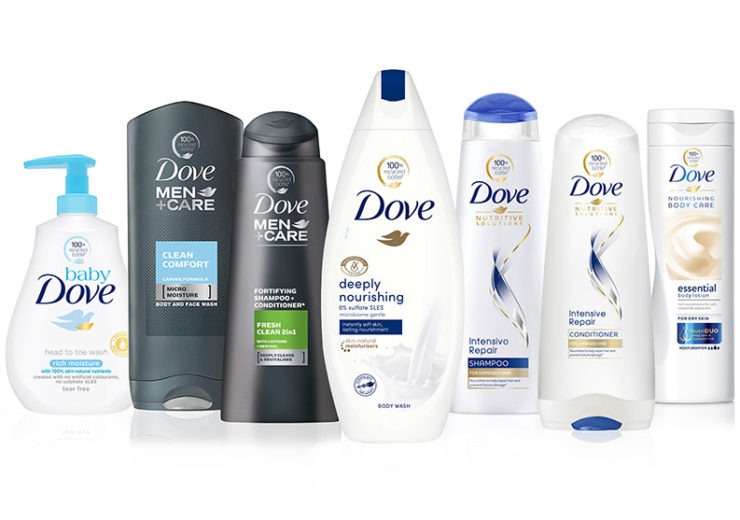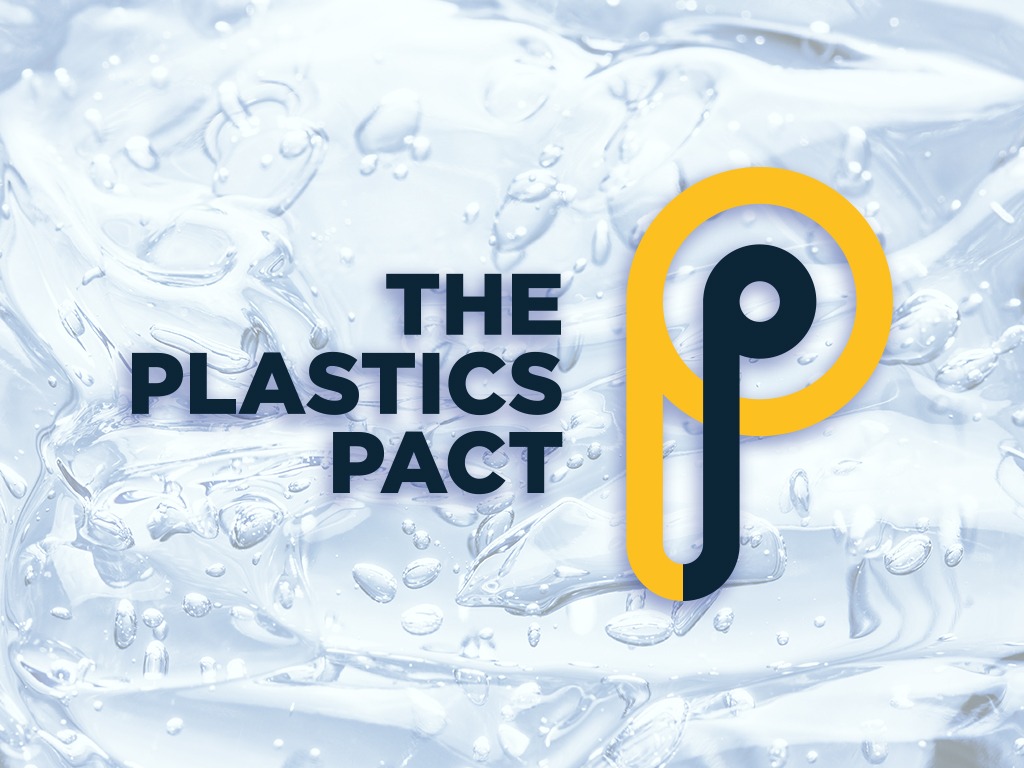Dove's use of recycled bottles for its plastic packaging is part of parent company Unilever's aim to help collect and reuse more plastic than it sells

Dove will also launch plastic-free packaging for its single-pack beauty creams bar globally from next year (Credit: Unilever)
Beauty product manufacturer Dove has announced it is to make 100% of its plastic packaging from recycled bottles in Europe and North America by the end of 2019.
The brand, owned by consumer goods giant Unilever, will also launch plastic-free packaging for its single-pack beauty creams bar globally from next year.
The paper-based packages will replace the plastic wraps that it uses in several markets.
It claims the move will avoid the use of more than 20,500 tonnes of virgin plastic globally per year.
Dove global skin cleansing vice president Marcela Melero said: “At Dove, we believe in care that goes further – for our consumers as well as our planet.
“We are passionately committed to being one of the brands making the biggest impact against plastic waste.
“We know we’re not perfect, but we can’t afford to wait. We’re working to have the biggest positive impact we can, as quickly as we can, and empowering others to do the same.”
Unilever aims to halve its use of virgin plastic
The move from Dove will contribute to Unilever’s commitment to halve its use of virgin plastic, a reduction of more than 100,000 tonnes.
It also aims to help collect and process more plastic packaging than it sells and accelerate its use of recycled plastic.
Unilever chief research and development officer Richard Slater said: “At Dove, we are proud to have more than 100 initiatives ongoing around the world dedicated to tackling plastic waste.
“But as one of the biggest beauty brands in the world, we have a responsibility to accelerate our progress even further.
“Today’s announcements are an important step in our work to transform how we produce, use and dispose of plastic packaging.
“By making this move, we aim to drive the global recycling industry to collect more waste plastic and make more recycled plastic available for use.”
Earlier this year, Unilever UK and Ireland released a five-point plastics plan to reduce plastic waste across the region, accelerate progress towards its global packaging commitment and make contributions towards the UK Plastic Pact targets.
Members of the pact aim to make 100% of their plastic packaging reusable, recyclable or compostable by 2025, with 70% of this being effectively recycled or composted.

Helen Bird, strategic engagement manager for Waste and Resources Action Programme (WRAP), one of the charities which helped to launch the UK Plastics Pact, said: “As a founding member of The UK Plastics Pact, Unilever continue to work at pace on their commitment to eliminate unnecessary plastic, make plastic packaging recyclable, reusable or compostable and increase the use of recycled content, thereby reducing the need for new plastic production.
“Making these initiatives a success also rests with citizens, using refill and concentrate options and also recycling the packaging so that it can be remanufactured.
“Our research shows that while we are well accustomed to recycling items from the kitchen, there is often valuable plastic packaging missed from the bathroom.”
Sander Defruyt, new plastics economy lead of fellow circular economy charity the Ellen MacArthur Foundation, which also helped to set up of the UK Plastics Pact, said: “Better recycling alone will not solve the plastics problems we face today, we must address plastic waste at the source.
“This means eliminating the plastic items we don’t need, innovating the ones we do need so that all of them are reusable, recyclable, or compostable, and circulating all those we use by reusing them, or recycling them into new products and packaging.
“Action is needed now, and on all of these fronts in parallel. That is why we welcome Dove’s announcements.
“Their significant strides help reduce Dove’s use of virgin plastics, and help to accelerate the global transition to a circular economy for plastics.”
